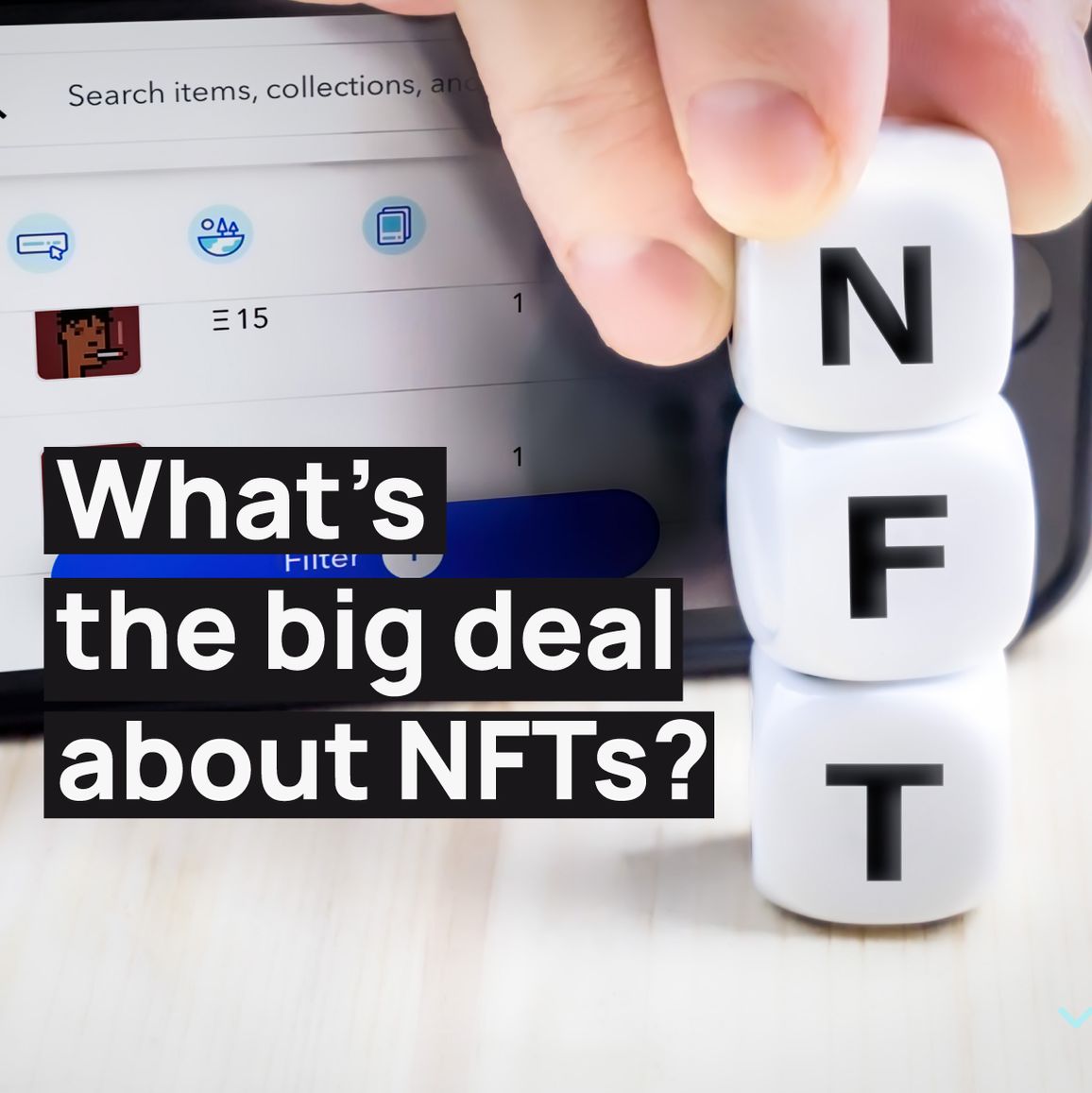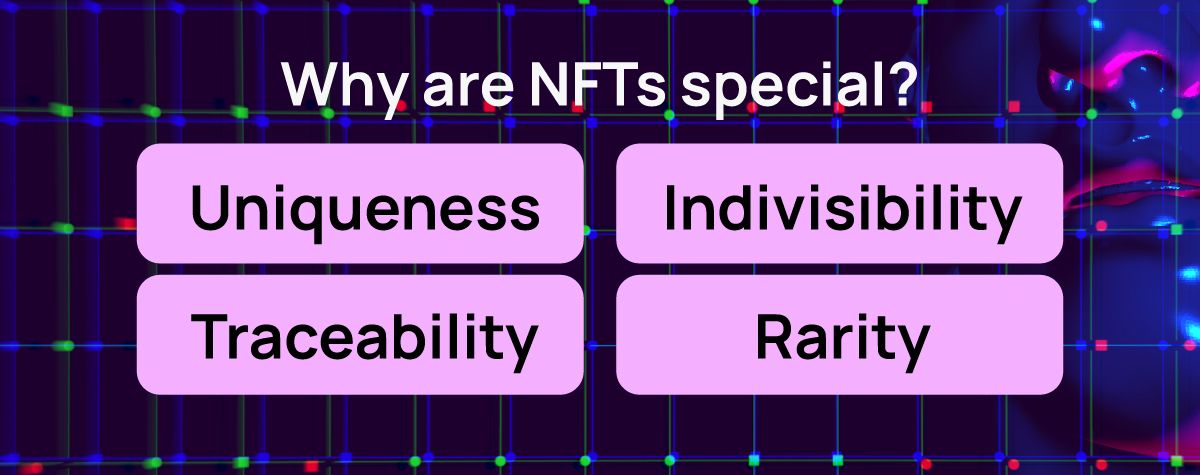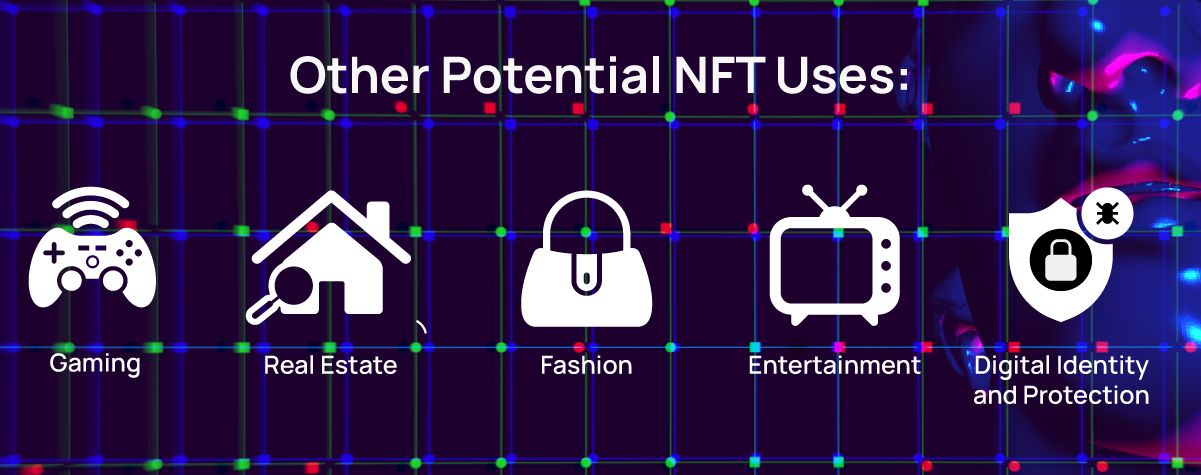What is the big deal about NFTs?

Facebook, Twitter, LinkedIn, Instagram. Every part of the internet is filled with people talking about uploading their digital arts on some particular platform and selling them at a certain rate. The viral word on every post is: NFT. Apes, cats, paintings, selfies, natural and real estate photographs, apocalyptic arts, and more. These are examples of digital arts that NFT artists have minted for sale.
What exactly is an NFT?
NFT is a short form for Non-Fungible Token. It is a unique digital asset (images, videos, digital arts, and more). By non-fungible, this means it cannot be replaced with something else because of its uniqueness. This is the opposite of fungible items, which are easily exchangeable. Examples of fungible items are traditional and digital currencies.
Why are NFTs special?
Since NFTs are digital assets, they are stored on the blockchain network. As a result, the blockchain network equips them with features that make them special. Some of the features are:
1. Uniqueness: All NFT assets are unique. When stored on the blockchain network, a code is created for each asset that determines its uniqueness.
2. Indivisibility: NFTs are not divisible. You cannot purchase half digital art. Also, two people cannot claim ownership to an NFT at a time. It has only a unique owner, but it can transfer that ownership by selling it off.
3. Traceability: NFTs are traceable. Storing them on the blockchain network makes it easy to access their backgrounds. For example, one can easily know who the original creator of an NFT is and the buyer.
4. Rarity: NFTs are rare digital assets. What makes them rare can be attributed to the background story regarding the creation of each asset. For example, Mike Winkleman's artwork "Every Day: The 5000 days" is considered rare because it is a collage of his artworks. Yet, the artwork was sold as an NFT for a crazy amount of $69 million. Likewise, Jack Dorsey's first tweet, which sold as an NFT for a whopping amount of $2.9 million, is considered rare because it is his first tweet.
Rarity makes NFTs attractive and highly valuable for collectors. Most NFT artists and project founders build their NFT assets with a background story that creates rarity and increases value.

Apart from purchasing and trading NFTs as digital assets, what's the big deal about them?
Many people consider NFT as something only rich people would do. It's seen as the latest technological trend which allows rich people to purchase and invest thousands in digital arts. However, you should know that NFT is not all about buying and trading arts. It has so many potentials and future use cases. Among NFT use cases are:
1. Gaming: The gaming industry is known to be operated on a centralized server, allowing for purchasing and trading in-game assets. With NFT, the gaming industry has been given a facelift. Play-to-earn games are the new cool.
P2E is a gaming model which allows players to purchase or trade NFT as in-game assets. Then, they can sell these NFTs on marketplaces at a higher price or sell to fellow players. By this, they earn while having fun. P2E games are Axie Infinity, Sandbox, Decentraland, and others. Read our previous Play-to-earn article.
2. Real Estate: With the introduction of the Metaverse as a virtual world where users can have close to real-life experiences, NFT also has a huge role in developing the Metaverse. NFT serves as the gateway for property ownership in Metaverse real estate.
3. Fashion: The fashion industry is leveraging NFTs to sell its products. Using NFT goes a long way in preventing the duplication of original fashion products. In addition, the unique proof of ownership for the purchase of digital products can be made easy through NFT.
4. Entertainment: The entertainment industry is leveraging NFT to solidify its authority. Musicians can now sell their tracks as NFT. A popular rock band was reported to have made over $2million selling music as NFT. Super Bowl highlights trading cards were reportedly sold for over $1.6 million. In addition, NFT ticketing is gradually becoming a thing in the entertainment industry.
NFT ticketing means people will have unique NFT tickets as passes to concerts and parties. This prevents the purchase of tickets from black markets and third parties who buy event tickets in bulk only to sell at higher prices.
5. Digital Identity and Protection: With NFT, protecting people's identity on the internet. Individuals can have a unique identity of themselves as NFT. This prevents hackers and data manipulators from using their identities online, as they would be subjected to verification.

Closing Thoughts
The NFT industry is making unprecedented waves. What you should know is that NFT is not limited to digital arts. NFT is not only about cats, apes, and paintings. NFT has huge future potential, which can only be made possible through its use cases.

